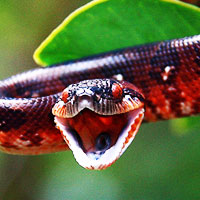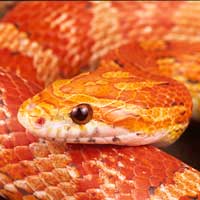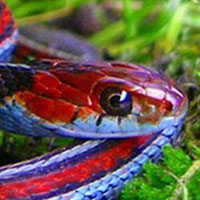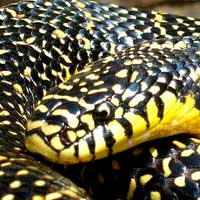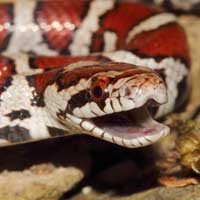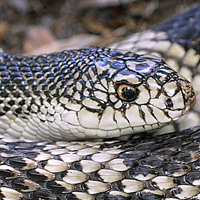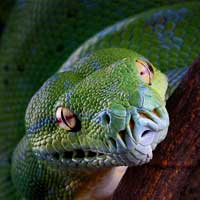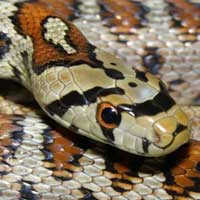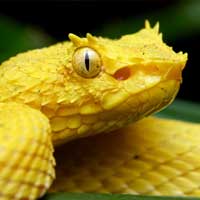California Kingsnake: Everything You Need to Know About This Amazing Reptile
The scientific name of the California Kingsnake is Lampropeltis getula californiae. It belongs to the Colubridae family, which is the largest family of snakes and includes many non-venomous and mildly venomous species.
Scientific Name: Lampropeltis getula californiae
Snake Family: Colubridae
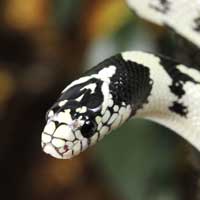
Introduction to the California Kingsnake
The California Kingsnake (Lampropeltis getula californiae) is a strikingly beautiful and non-venomous snake native to the western United States. Known for its adaptability and bold patterns, it is a favorite among reptile enthusiasts. Its manageable size, ease of care, and docile temperament make it an excellent pet for both novice and experienced snake keepers.
Where Does the California Kingsnake Live?
The California Kingsnake thrives in diverse habitats across its range, which spans the western United States and parts of Mexico. Its adaptability allows it to inhabit areas ranging from deserts to forests.
Preferred Habitat Features:
- Deserts and scrublands
- Grasslands and meadows
- Woodlands and forests
- Riparian zones near water sources
| Region | Habitat Type | Key Features |
|---|---|---|
| California | Deserts | Arid climate, rocky terrain |
| Southwest USA | Grasslands | Open fields, abundant prey |
| Northern Mexico | Woodlands | Sheltered areas with ground cover |
What Does the California Kingsnake Eat?
The California Kingsnake is a carnivorous predator with a varied diet, which includes a wide range of prey items. Its opportunistic feeding habits make it a highly effective predator in the wild.
Common Diet:
- Rodents such as mice and rats
- Birds and their eggs
- Lizards and amphibians
- Other snakes, including venomous species
In captivity, feeding frozen-thawed rodents is the safest and most convenient option. Juvenile California Kingsnakes should be fed every 5-7 days, while adults typically require feeding every 10-14 days.
Behavior and Temperament of the California Kingsnake
California Kingsnakes are known for their curious and active behavior. Though they may exhibit defensive behaviors when threatened, they generally adapt well to handling and captivity.
Key Behavioral Traits:
- Active during the day and early evening
- Non-aggressive but may hiss or coil defensively when startled
- Excellent hunters and climbers
- Calm and docile with regular handling
With consistent, gentle handling, these snakes often become comfortable and even inquisitive around their owners.
Health and Lifespan of the California Kingsnake
The California Kingsnake is a hardy species with a lifespan of 15-20 years when properly cared for. Regular monitoring of its health and habitat conditions is essential to ensure longevity.
Common Health Concerns:
- Respiratory infections caused by poor humidity control
- Shedding issues due to low humidity levels
- Parasites, particularly in wild-caught specimens
Maintain a temperature gradient of 75-85°F, provide clean water for hydration and soaking, and ensure a clean environment to prevent health issues. Regular check-ups with a reptile veterinarian are recommended.
Reproductive Traits of the California Kingsnake
The California Kingsnake is oviparous, laying eggs after mating. Its reproductive habits are influenced by seasonal changes in temperature and light.
Reproductive Details:
- Mating season: Spring
- Clutch size: 6-15 eggs
- Incubation period: 50-70 days
- Hatchlings are independent at birth
In captivity, providing a suitable nesting area and maintaining proper incubation temperatures (82-85°F) are crucial for successful breeding.
How to Handle and Care for the California Kingsnake
Handling and caring for a California Kingsnake is straightforward, making it an ideal choice for beginners and experienced reptile keepers alike.
Handling and Care Tips:
- Handle regularly to build trust and reduce stress
- Provide an enclosure with hiding spots and climbing structures
- Maintain a clean environment with proper humidity and temperature
- Offer a varied diet of appropriately sized prey
With the right care, California Kingsnakes can thrive in captivity and provide years of enjoyment to their keepers, showcasing their stunning patterns and fascinating behaviors.
